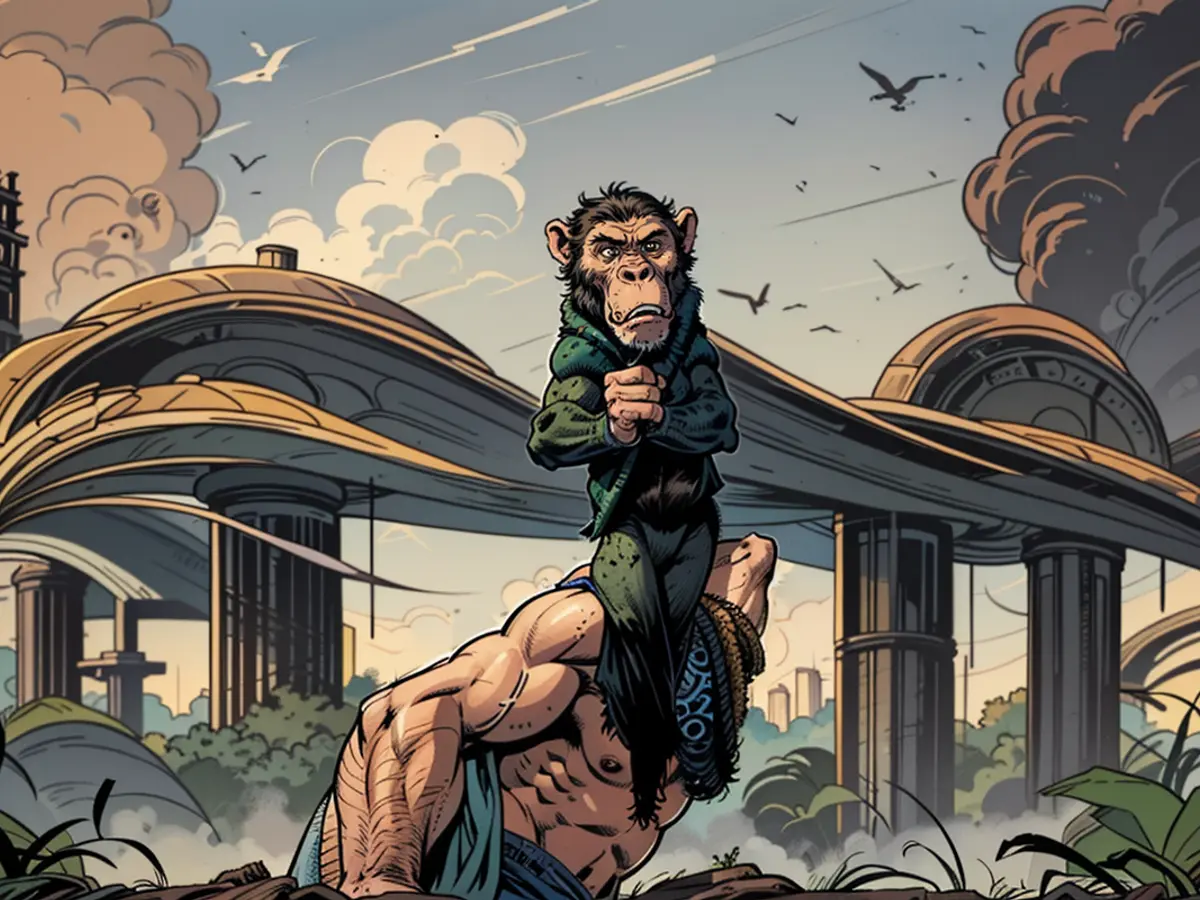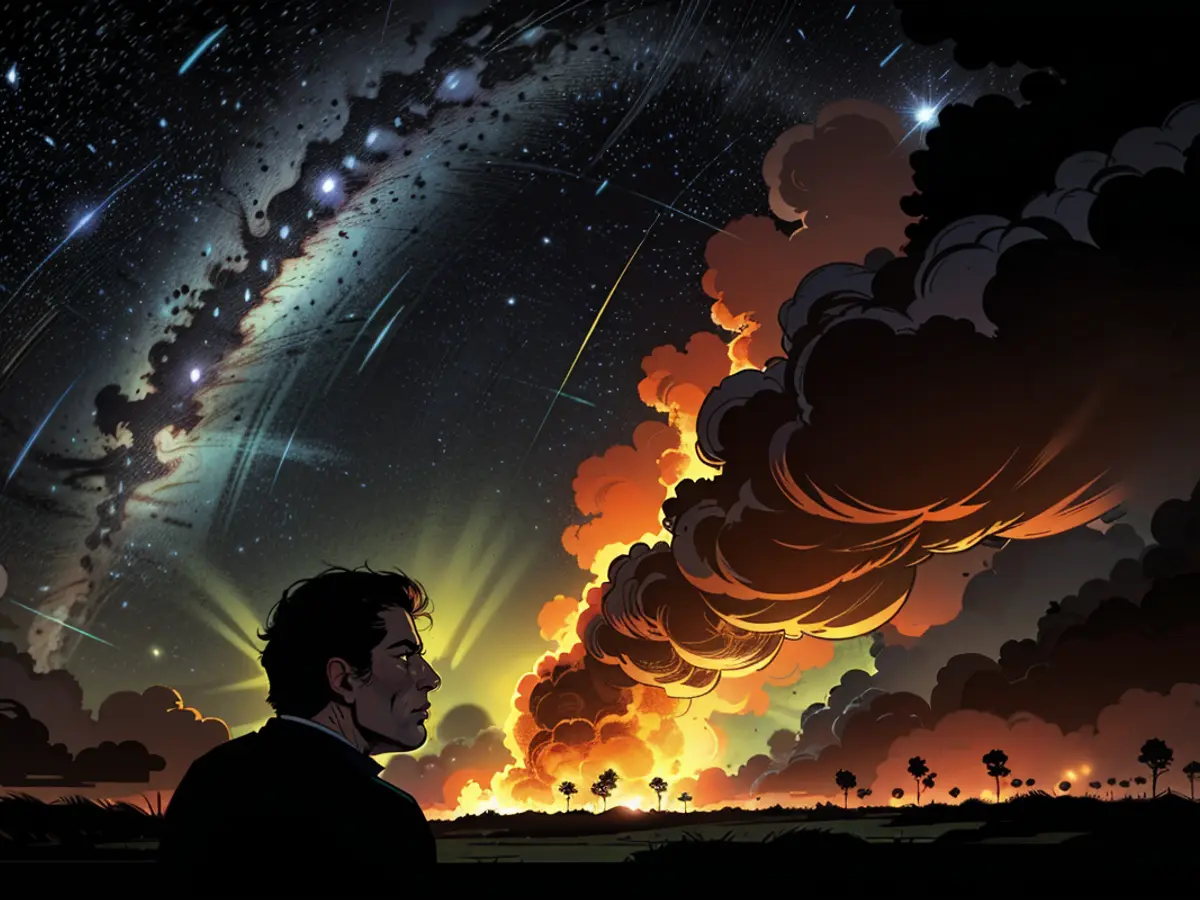Torrential blazes ravage the Pantanal wetland of Brazil, setting a new destructive record.
Earth's largest tropical wetland, the Pantanal, located in Brazil, is currently engulfed in flames, with June fires breaking previous records for the month.
From an aerial perspective, smoke rises and the fiery orange glow of the blazes can be seen. However, a closer examination of the charred remains reveals skeletons of wildlife such as alligators, monkeys, and snakes, as shown by Reuters earlier this week.
As per Brazil’s National Institute of Space Research (INPE), 733 fires have been detected in the Pantanal biome this month, surpassing the 435 fires recorded in June 2005, which earlier held the record for Pantanal fires.
The state of Mato Grosso do Sul, which accounts for 60% of the Brazilian Pantanal, is under a warning for a forthcoming heat wave, with temperatures expected to be 5°C higher than usual for the next three to five days, as per Brazil’s National Meteorological Institute (INMET).
The World Wildlife Foundation (WWF) Brazil has issued a warning that the entire year of 2024 could set a record as the most devastating for the Pantanal, given that the dry season has just begun, and the number of fires this year is 898% greater than the same period in 2023, according to INPE’s data.
Cynthia Santos, conservation analyst for WWF Brazil, stated, "It is essential to take immediate action by bolstering fire brigades and relying on the cooperation of local communities to avert a catastrophe."
Insights about the wetlands
The Pantanal's unique habitats depend on the "flood pulse." During the wet season from November to March, three quarters of the region gets flooded, with much of the water draining away during the dry months from April to September. This seasonal flooding makes the Pantanal a singular biome where large tracts of land periodically transform from terrestrial to aquatic habitats and vice versa.
Wetlands like the Pantanal are considered Earth's most efficient carbon sinks - ecosystems that absorb and retain more carbon than they emit, keeping it out of the atmosphere. Covering approximately 200,000 square kilometers, the Pantanal forms about 3% of the world's wetlands and plays a significant role in the carbon cycle.
When these carbon-rich ecosystems burn, large quantities of heat-trapping gases are released back into the atmosphere, exacerbating the greenhouse effect.
According to the World Wide Fund for Nature (WWF), the Pantanal hosts the highest concentration of wildlife in South America, surpassing its more renowned northern counterpart, the Amazon.
"The Pantanal is crucial for the planet, as it houses unique wild zones that are vital for life on Earth," stated Andre Luiz Siqueira, the CEO of ECOA, an environmental NGO based in Mato Grosso do Sul, in an interview with CNN in 2020.
The region is home to numerous endangered or unusual species such as jaguars, capybaras, black caimans, giant otters, and hyacinth macaws. It also serves as a resting place for around 180 species of migratory birds.
The Pantanal is dealing with a "hydrological crisis scenario" due to an ongoing drought. The lack of rain started in 2023 and has been intensified by the ongoing El Niño phenomenon, as per ECOA.
Occasionally, wildfires are a common occurrence in the Pantanal, with some plants in the region evolving resistance to fires, such as growing thick bark or encasing their seeds in hard shells.
In 2020, the fires ravaged unique habitats and impacted the livelihoods of several Pantanal’s diverse indigenous communities.
With previous reporting from Ivana Kottasová, Henrik Pettersson, and Krystina Shveda

Read also:
The World Wildlife Foundation (WWF) has raised concerns that the entire year of 2024 could set a record as the most devastating for the Pantanal, given the current high number of fires and the upcoming dry season. This alarming situation could have significant implications for the Americas and the world, as the Pantanal is not just the largest tropical wetland in South America but also forms around 3% of the world's wetlands and plays a critical role in the carbon cycle.







